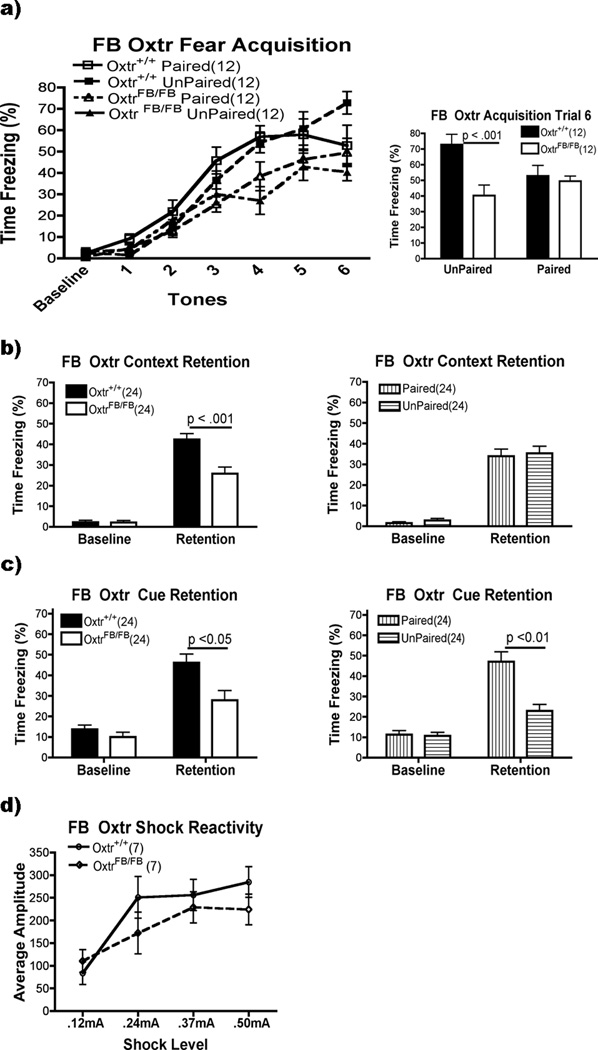Figure 3.
FB Oxtr performance on fear conditioning and shock reactivity. a) OxtrFB/FB mice were worse overall on acquisition (p<0.01; left panel). On trial 6 (right panel), OxtrFB/FB in the unpaired group froze less than Oxtr+/+; freezing was equal in the paired group. b) While OxtrFB/FB mice froze to the context following training (p<0.001), they froze less than the Oxtr+/+ (p<0.001). c) Mice receiving unpaired tones/shocks froze less than those that received paired training (p<0.01). OxtrFB/FB froze more during tone presentation than during the baseline period (p<0.001), but still froze less than Oxtr+/+ mice (p<0.05). d) Shock reactivity was the same in OxtrFB/FB and Oxtr+/+ mice.

